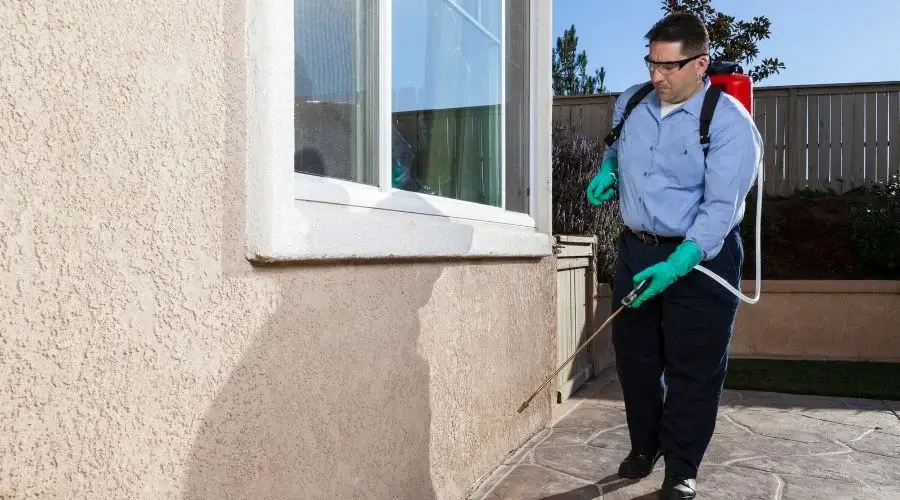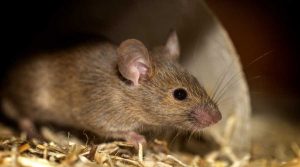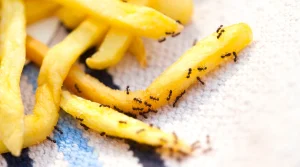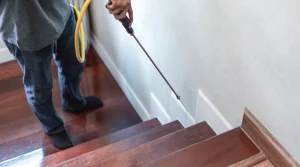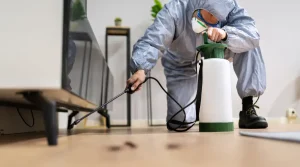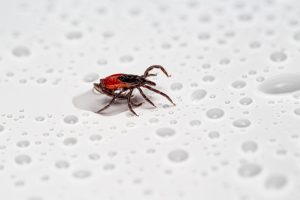Pest management often goes unnoticed but remains critical for the upkeep of buildings and properties. Whether it’s a bustling restaurant, an upscale hotel, a busy school, or a sprawling farm, pests present significant threats if not properly addressed. This piece will delve into the challenges these establishments face with pests and provide practical strategies to deter them effectively.
No pest issue is too daunting for our team at Poway Pest Control. Let us prove our commitment to excellence and safeguard your property against pests year-round.
Exploring Pest Control Dynamics
Pest control is a crucial industry that eliminates various pests, such as insects, rodents, and wildlife. These nuisances can endanger human health, cause structural damage, and disrupt the ecosystem. Pest control professionals employ techniques tailored to specific scenarios, including specialized insects or targeted chemicals. Their role is pivotal in maintaining the safety of our living spaces and surroundings.
The Importance of Pest Control in Varied Work Environments
Managing pests in workplaces is more than just a matter of convenience—it’s essential for maintaining a safe and hygienic environment. For instance, insects in dining establishments and hotels can swiftly contaminate food, leading to health risks and damaging the establishment’s reputation. In educational institutions, pests can disrupt learning activities and pose health hazards. Similarly, pests wreak havoc on farms by destroying crops, resulting in significant financial losses. Thus, proficient pest management safeguards human health and business interests.
Common Approaches to Pest Control
Integrated pest management (IPM) is the primary method adopted across different sectors. IPM combines sanitation, habitat modification, biological control, and chemical treatments. However, the strategy may vary depending on the pest and environmental factors.
Best Practices in Pest Control
Dos of Pest Control:
Regular Inspection: Conduct frequent pest inspections to detect issues early on, preventing minor problems from escalating into major infestations.
Maintain Cleanliness: Ensure cleanliness and tidiness at all times to deter pests. Dispose of garbage regularly, promptly clean up spills, and store food in airtight containers to discourage pests.
Seal Entry Points: Seal any openings in walls, floors, and doors to prevent pest intrusion. Weather stripping and caulking effectively block gaps and reinforce premises against pests.
Don’ts of Pest Control:
Overreliance on Chemical Pesticides: Excessive use of chemical sprays can harm human health and the environment. Instead, consider alternative methods like biological controls, habitat alterations, or traps to minimize chemical exposure.
Ignoring Pest Issues: Address pest sightings promptly to prevent the situation from worsening. Delaying action could lead to rapid pest proliferation, causing extensive damage and health hazards.
Embracing Pest Prevention
Effective pest management relies heavily on preventative measures.management. Rather than reacting to pest invasions, take proactive Steps such as placing screens on windows and doors following proper waste disposal practices, and fixing structural vulnerabilities. These preemptive measures collectively strengthen defenses against pests, ensuring safety and satisfaction.
Tailoring Solutions to Specific Environments
Restaurants: Maintain impeccable hygiene standards, securely store food, and conduct regular pest inspections.
Hotels: Educate staff about pest management protocols, conduct routine room checks, and reinforce entry points.
Schools: Uphold cleanliness standards, store food properly, and conduct periodic pest assessments.
Agricultural Operations:
- Rotate crops to deter pests.
- Utilize pest-resistant plant varieties.
- Harness beneficial insects for pest control instead of relying solely on chemical interventions.
Conclusion
Pest control is indispensable in facilities management across various industries, from hospitality and education to agriculture. By understanding the unique challenges posed by pests in each sector and implementing proactive pest control measures, businesses can safeguard their reputation, uphold public health standards, and mitigate financial losses from pest infestations. Prevention is key, so take decisive action to maintain a pest-free workplace.

